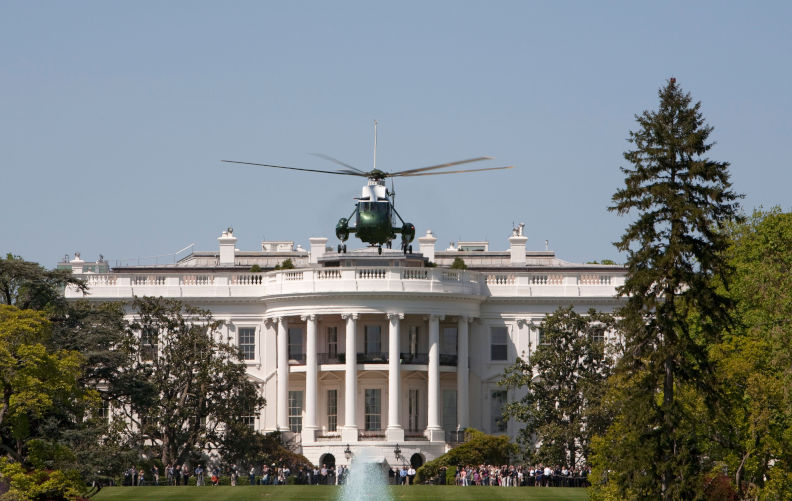As political violence rises in the US, only Americans can save themselves
June 25, 2025
The protests against Trump and his policies evoke memories of South Korea’s April Revolution, but no outside actors look likely to step in to help.
Law enforcement agencies empowered by the government to carry out the agenda of an ageing president eager to settle political scores. Politicians, media and judges facing harassment and even arrest by forces loyal to the president.
A ruling party in lockstep with its autocratic leader, unwilling to challenge him amid a combination of ideological factors but also careerism. Police forces dispatched with emergency powers into strongholds of the political opposition. Politicians associated with the opposition party murdered.
This situation describes not the United States of today, but South Korea under its first president, Syngman Rhee. Following the Korean peninsula’s liberation from decades of Japanese colonisation in 1945, the national division of 1948 and then the Korean war of 1950-53, the ostensibly democratic South Korea suffered from weak institutions and established norms.
This, along with the ever-present threat of North Korea and communist infiltration, plus extensive US backing, allowed Rhee to turn the country’s ruling Liberal Party into an organisation built almost entirely around loyalty to him. He could personally direct the country’s internal security forces against threats to his position.
Consequently, Rhee maintained tight control over the government for 12 years, even as the economy stagnated, his forces grew more brazen in their oppression and public discontent began to mount. These pressures finally boiled over in April 1960 when a massive uprising, led by young people unhappy with their still-dim economic prospects and Rhee loyalists’ blatant election-rigging, marched on the capital, prompting a fatal police crackdown.
This only stirred further outrage and protests, leading to a harsh reaction from the United States, South Korea’s most important ally. Rhee quickly resigned and, though he had spent decades during Japanese colonisation as a brave, self-sacrificing advocate for his people’s independence, is today largely remembered as a failed president and an autocrat, unworthy of being memorialised.
With the recent murder of one Minnesota state lawmaker and near-death of another, arrest of officials who have confronted the country’s immigration enforcement agencies and assorted attacks on members of the press, it certainly appears that US political culture has fallen on dark times.
The political violence of South Korea in the era of its nascent democracy is hardly the only comparison one could make. In 1930s Japan, movements opposed to the consolidation of military power and rising nationalist sentiment were subject to crackdowns and even assassinations. The US itself is no stranger to political violence – changing racial dynamics have frequently prompted violence of both the official and extra-legal varieties, especially in the south, following the Civil War, through the end of legally enforced segregation in the 1960s.
These stories are, to an extent, interlinked. With its opposition murdered or intimidated into silence, the same imperial and increasingly xenophobic Japan, that had annexed Korea in 1910, by the late 1930s believed that war with the US was inevitable and that its best chance was to strike first at Pearl Harbour and hope for a negotiated settlement.
This made inevitable the US confrontation with not only Japan and its European allies, but also its own internal contradictions. Scholars have connected the role of increasing integration of black American troops in World War II with the pushes to officially end segregation in the rest of society in the decades that followed.
In 1960, within days of the crackdown by Rhee’s forces on student demonstrators, the US State Department condemned these repressive steps as contrary to what the US had hoped for when it helped secure Korea’s independence from Japan. The turn of countries such as Japan and South Korea away from state-sanctioned violence, and the turn of the US away from an official policy of discrimination backed by force, have long heartened liberals assured of the eventual triumph of their ideals.
But now political violence is on the rise again and the US is seeing an especially sharp upswing. Numerous factors could be behind this – rising economic insecurity, the increased siloing of people into like-minded communities and the inability to recognise the humanity of others, as well as the pervasive presence of disinformation spread through online channels. All of these factors, and more, have played a role.
What is especially concerning, though, is that in the case of Japan in the 1930s and the US and South Korea in the 1960s, outside intervention from a larger force was required to intervene and foster stability. A coalition of free nations disarmed imperial Japan and stripped it of its colonies in 1945. The same US-led coalition, 15 years later, denounced Rhee’s repression with the implicit threat that they would withdraw support and force Rhee to face the threat of communism to his north alone.
Around the same time, the US Supreme Court struck down segregation and US President Lyndon B. Johnson dispatched the National Guard to protect protesters advocating for racial integration.
Today, the US federal government is again deploying the National Guard, but this time against protesters concerned about the abuses of immigration authorities. There is no grand international coalition assembled to step in and save the US from its own violence, or threaten it with the withdrawal of much-needed support.
Further confrontation does seem to be brewing. The economic anxiety that has contributed to this unrest has not abated, and Americans overwhelmingly feel the country is headed in the wrong direction. Should conditions continue to worsen, doubtless many of them will display bravery like that of young Koreans in 1960. The difference is that it may be up to them to save themselves from the violence that may follow.
Republished from South China Morning Post, 22 June 2025
The views expressed in this article may or may not reflect those of Pearls and Irritations.

